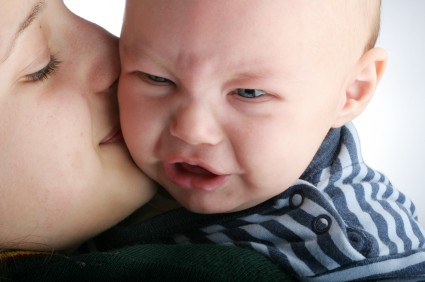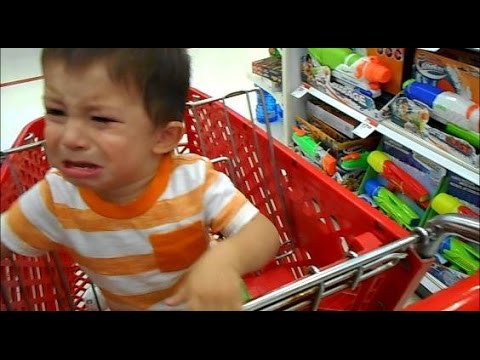Public Tantrums? Here’s How to Handle Them
Another tantrum in the store?
Ah…the beloved moment when your child begins to act as a human windshield wiper against the grocery store floor. It’s a humbling experience for all to go through a public temper tantrum. We’ve gathered some tips and thoughts on how to turn the embarrassment level from a 10 to a 5. Let us know what you think.
- Before going anywhere, try to stock your bag with snacks and drinks. Sometimes all it takes for a meltdown is a want for food. Sure, your food may not be the object of desire as you stroll by the chocolate chunk cereal….but it may appease the anger for a little longer.
2. Be an example of how to act: You want to pull your hair out. We get it. Completely. But your toddler doesn’t need to know this. This fact may only make your little one more upset. Stay calm and take deep breaths. Rushing out of the store won’t make your child any more calm. In fact, it may cause more agitation. Once out of the center of attention, keep your wits. Don’t attempt ending the ordeal quickly. Rushing the process is a recipe for disaster. Sit down with your little one and let them know you understand how they’re feeling. Pat them on the back or sit them in your lap. Let the little one know it’s okay to have bad feelings but that it’s time to calm down.
- “What can I do for you?”: Asking a question like this lets your little one know you are on their side. It does not mean you will give them what they want, but opens up a dialogue to explain the situation. Maybe they can’t have that lollipop because it has too much sugar…but they can have an oatmeal bar! No matter what – don’t give in to the reason of the temper tantrum no matter what. It will only make your child realize that all they have to do is throw a fit to get anything they want. Stick to your ground and keep calm. You’ll get through it…we promise!
Minnieland Academy provides early childhood education and care for infants through school-age children.
Founded in 1972 by Chuck and Jackie Leopold, Minnieland Academy has provided Virginia families with the best early childhood education and care for over 40 years. We have over 60 schools that serve infants through school age children, helping them develop in a loving environment. We believe that learning is fun, and our Kid Steps curriculum provides age appropriate education at every level of their growth.
Come tour one of our schools and become part of the Minnieland Academy Family! https://www.minnieland.com
Mistakes to Avoid When it Comes to Disciplining Your Child
However, as much as we know guidance and discipline are important to our children, there are instances when we may actually be doing it improperly. Here are some examples below to be aware of:
- Yelling at them – Yelling happens, but of course it is not ideal as it can cause our children to fear us. Yelling can convey to our children that we are not listening to their frustrations and encourage shouting as a way to enforce will versus talking through things. As a result, kids can actually become
more rebellious. Talking through why you are upset, or why a behavior is bad helps to teach cause-and-effect and reasoning skills. - Nagging – Do you want to repeat yourself over and over again? Do you love hearing someone repeat themselves over and over again? Neither do your children. Nagging will only frustrate you and encourage your children to tune you out. Creating a system of warnings and results if your requests are not met is another great way of teaching cause-and-effect to your children. For example, “If Mommy has to ask you to do something 3 times, X will happen because you did not listen.”
- Giving in instantly – What’s the use of setting rules only to bend them? Kids learn pretty quickly how we work, and can get very good at outsmarting us! If you always give in to them whenever they whine or cry. There is really no point of putting effort into discipline. Your children will only find a way to break the rules. Hold fast, even when the crocodile tears start to well up.
- Expecting a lot from your children – Kids will be kids and since they only know and experience a little, they will stumble along the way. Expecting too much from them will only discourage them and can make them overly cautious and guarded for fear of disappointing you. Be realistic and understand the limitations of your children. Work with them to encourage them – and of course, reward positive behavior when it occurs, and tell them why.
- Becoming inconsistent – Are you allowing them to slide once in a while? It may seem “kind” for parents to let the kids slide from time to time, but doing so will only make them realize that it is okay to make mistakes or not follow the rules if they feel they can get a mulligan.
- Being negative – Excessive negativity can have a powerful impact on the development of your child. Be mindful of the words you use. Instead of focusing on negative reinforcement for bad behavior, use positive reinforcement for good behavior. Kids love praise from their parents – just be sure to explain the ‘why’ as children are inquisitive by nature while they work on figuring out how the world around them works.







